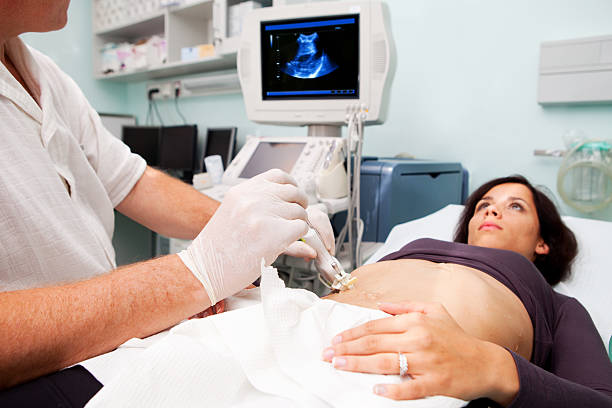Exploring Abdominal Ultrasound Scans: A Non-Invasive Approach to Diagnosis
One of the most significant advantages of ultrasound is its painless and safe nature. This procedure entails no adverse effects, either during or after the examination, this making it a preferred choice for many individuals seeking medical insights.
Within the realm of liver health, ultrasound plays a vital role in identifying hepatic steatosis, commonly referred to as fatty liver. This condition involves the accumulation of fatty deposits in the liver. While a certain amount of fat in the liver is normal, a fat content exceeding 5 to 10 percent classifies as fatty liver disease. Importantly, this condition is reversible and can be managed through diet and exercise.
Non-alcoholic fatty liver disease (NAFLD) is another common disorder, characterized by fat accumulation in the liver among individuals who consume minimal or no alcohol. The most frequent manifestation of NAFLD is fatty liver, a non-serious condition.
Addressing fatty liver entails a multifaceted approach, including safe weight loss, triglyceride reduction through dietary changes or medication, abstaining from alcohol, diabetes management if applicable, a balanced diet, and increased physical activity.
Ultrasound scans are indeed capable of detecting cancer within the abdominal organs. An abdominal ultrasound assesses the liver, kidneys, pancreas, gallbladder, and spleen for any abnormalities. If a mass indicative of possible abdominal cancer is observed during ultrasound, further imaging through CT or MRI is required to confirm its existence.
The duration for scheduling an abdominal ultrasound varies across NHS hospitals, typically taking place within approximately six weeks. In private clinics, like ours, it’s possible to secure a same-day or next-day appointment.
Contrary to inaccurate online information, fasting for an abdominal ultrasound doesn’t necessitate an excessive 8 to 12 hours. Merely fasting for four hours suffices, and you can consume your medication with clear fluids like water during this period.
The benefits of abdominal ultrasound are manifold: it’s non-invasive, painless, widely available, cost-effective, and doesn’t employ ionizing radiation. However, ultrasound has limitations; it struggles to penetrate bowel or gas, hindering the evaluation of abdominal organs obscured by these factors. Also, visualizing internal anatomy in larger individuals can be challenging due to the greater distance sound waves need to travel.
Abdominal scan results are interpreted by a highly trained ultrasonographer. They perform the ultrasound, provide a diagnostic report, and discuss the findings with you during and after the examination.
At our clinic, located in the heart of London, we offer same-day appointments in a compassionate environment. Our experienced, qualified sonographers are registered with the HCPC, BMUS, and SoR, ensuring your health is in capable hands.
Choosing us for your private abdominal ultrasound scan means benefiting from our convenient location, same-day appointments, and the expertise of our qualified sonographers. We prioritize affordability without compromising diagnostic accuracy or service quality, offering competitive prices and transparency.
If you seek an abdominal ultrasound scan in London, you’re at the right place. At London Private Ultrasound, we offer a range of ultrasound scans, conveniently located in central London. Our consultant sonographers, experienced in medical ultrasound, guarantee exceptional service quality and diagnostic accuracy. We offer flexible same-day and out-of-hours appointments, ensuring your convenience.
Inquiring about the cost of private abdominal scans? Our philosophy revolves around affordable healthcare, ensuring ultrasound imaging remains accessible to all. Our pricing is competitive and transparent, with no hidden costs.
Booking an abdominal ultrasound is simple through our online booking diary, offering evening and weekend appointments. If you face any issues, feel free to reach out via email or phone.
Abdominal ultrasound, also known as liver ultrasound, is a diagnostic investigation that assesses your liver for abnormalities. Unlike CT scans, ultrasound uses sound waves instead of radiation.
The benefits of abdominal ultrasound are abundant, including non-invasiveness, painlessness, accessibility, cost-effectiveness, and the absence of ionizing radiation. No harmful effects on humans are associated with ultrasound examinations.
While ultrasound is powerful, it does have limitations. It struggles to penetrate bowel or gas, limiting the evaluation of abdominal organs. Additionally, visualizing internal anatomy in larger individuals can be challenging.
In conclusion, abdominal ultrasound offers valuable insights into abdominal health, covering a range of vital organs. This non-invasive, painless, and accessible procedure aids in diagnosing and managing various conditions, and is particularly significant in assessing liver health.





